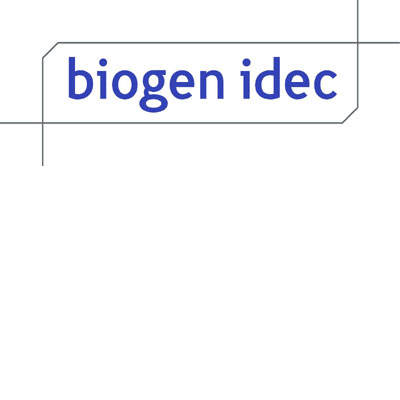New data analyses show significant clinical and MRI improvements with PLEGRIDY™ (Peginterferon Beta-1a)
Posted: 1 October 2013 | | No comments yet
Analyses reinforce efficacy of PLEGRIDY, further supporting a potential new treatment option for people with multiple sclerosis…


Biogen Idec (NASDAQ: BIIB) announced new data analyses from year one of the two-year, pivotal, Phase 3 ADVANCE study of PLEGRIDYTM (peginterferon beta-1a). PLEGRIDY is an investigational subcutaneous injectable for relapsing forms of multiple sclerosis (RMS), in which interferon beta-1a is pegylated to prolong the molecule’s exposure in the body and enable the study of a less frequent dosing schedule. Clinical and MRI data from the study demonstrated a reduction in relapses, disability progression and the number of MS lesions when compared to placebo, and further support the clinical efficacy profile of PLEGRIDY. These data will be presented this week at the 29th Congress of the European Committee for Treatment and Research in Multiple Sclerosis (ECTRIMS) in Copenhagen, Denmark 2-5 October.
“If approved, PLEGRIDY could become a valuable addition to the interferon class of multiple sclerosis therapies,” said Professor Peter Calabresi, MD, director, The Johns Hopkins Multiple Sclerosis Center. “The combination of efficacy demonstrated across key disease measures and a less frequent dosing schedule has the potential to offer an important therapeutic option for people living with MS.”
Improvements Seen in Clinical and MRI Endpoints
Over one year, absence of measured disease activity (defined as no relapses, no disability progression, no gadolinium-enhancing [Gd+] lesions and no new or newly enlarging T2-hyperintense lesions compared to baseline) among patients, was significantly higher with PLEGRIDY: 34 percent in the two-week dosing arm (p<0.0001) and 22 percent in the four-week dosing arm (p=0.01), compared to 15 percent in the placebo arm.
In the intent-to-treat population of the ADVANCE study, PLEGRIDY, when dosed every two weeks, significantly reduced the number of new or newly enlarging T2-hyperintense lesions, new T1-hypointense lesions, new Gd+ lesions and new active lesions compared to placebo at 48 weeks. Specifically, PLEGRIDY reduced the number of:
- New T1-hypointense lesions by 53 percent in the two-week dosing arm (p<0.0001) and 18 percent in the four-week dosing arm (p=0.082), ns
- New active lesions by 67 percent in the two-week dosing arm (p<0.0001) and 35 percent in the four-week dosing arm (p<0.0001)
And, as previously reported at the American Academy of Neurology’s 65th Annual Meeting in March 2013:
- New or newly enlarging T2-hyperintense lesions by 67 percent in the two-week dosing arm (p<0.0001) and 28 percent in the four-week dosing arm (p=0.0008)
- New Gd+ lesions by 86 percent in the two-week dosing (p<0.0001) and 36 percent in the four-week dosing arm (p=0.07), ns
“We believe the new analyses reinforce the efficacy of PLEGRIDY, which has been shown consistently across key MS disease measurements. They further support its potential as a treatment option for people living with this disease,” said Gilmore O’Neill, vice president, Global Neurology Clinical Development at Biogen Idec. “The ADVANCE study results we have seen to date indicate that PLEGRIDY may have a positive effect on the reduction of relapses, disability progression and the reduction of lesion development.”
Clinical and MRI results, including a post-hoc analysis evaluating the absence of measured disease activity from year one of the ADVANCE study, will be presented in the poster session titled, “Immunomodulation/Immunosuppression,” on Thursday, 3 October at 3:45 p.m. – 5:00 p.m. CET:
Peginterferon Beta-1a Provides Improvements in Clinical and Radiological Disease Activity in Relapsing Multiple Sclerosis: Year 1 Findings from the Phase 3 ADVANCE Study (poster 514)
Additional MRI results from the first year of ADVANCE will be presented in the poster session titled, “II Immunomodulation/Immunosuppression,” on Friday, 4 October at 3:30 p.m. – 5:00 p.m. CET:
Magnetic Resonance Imaging Results from the First Year of the ADVANCE Study, a Pivotal Phase 3 Trial of Peginterferon Beta-1a in Patients with Relapsing-Remitting Multiple Sclerosis (poster 989)
About PLEGRIDY
PLEGRIDY is a new molecular entity in which interferon beta-1a is pegylated to extend its half-life and prolong its exposure in the body. PLEGRIDY is a member of the interferon class of treatments, which is often used as a first-line treatment for MS.
Regulatory authorities in the United States and the European Union accepted the marketing applications for the review of PLEGRIDY in RMS in July 2013.
About ADVANCE
The two-year Phase 3 ADVANCE clinical trial is a global, multi-center, randomized, double-blind, parallel-group, placebo-controlled study designed to evaluate the efficacy and safety of PLEGRIDY in 1,516 patients with relapsing-remitting MS. The study investigates two dose regimens of PLEGRIDY: 125 mcg administered subcutaneously every two weeks or every four weeks compared to placebo. The analysis for all primary and secondary efficacy endpoints occurred at one year.
In the ADVANCE clinical trial, PLEGRIDY met all primary and secondary endpoints by significantly reducing disease activity, including relapses and disability progression, compared to placebo, and showed favorable safety and tolerability profiles at one year. PLEGRIDY also reduced the number of new or newly enlarging T2-hyperintense lesions and the number of Gd+ lesions on brain MRI scans after one year.
After the first year, patients on placebo are re-randomized to one of the PLEGRIDY arms for the duration of the second year of the study. After completing two years in the ADVANCE study, patients have the option of enrolling in an open-label extension study called ATTAIN and will be followed for up to four years.



